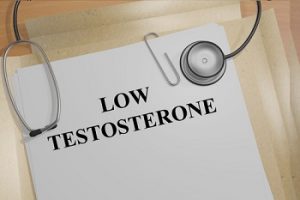Testosterone and diabetes have an inverse relationship. Doctors have long suspected that low testosterone symptoms include elevated blood sugar. Signs of low testosterone are a warning to guard against diabetes.
This information is pretty straightforward, and is gaining a lot of attention in the medical world. Elevated blood sugar and increased risk of diabetes is now linked to low testosterone.
This doesn’t mean that everyone that has low testosterone symptoms has or will have diabetes. However there is increased awareness of the role that normal hormone levels play in overall health, and doctors now find a relationship between testosterone and diabetes that warrants that you pay attention to any signs of low testosterone.
What is The Link?
This is conjecture on my part, but due to recent research on diabetes we know the nervous system has a critical role and that inflammation is a major factor in diabetes. Testosterone is vital for the proper function of the nervous system, and thus low testosterone will cause problems in nervous system function and blood sugar control.
Medical conditions like diabetes, metabolic syndrome, abdominal obesity, body mass index, ect., all tie in with increased inflammation and decreased levels of anabolic hormones like testosterone, DHEA, and HGH.
As I have mentioned many times before, these medical conditions don’t occur in isolation, they are all part of how the many systems of the body interact. When hormone levels decline, health declines across the board, and diabetes is just one part of that.
Signs of Low Testosterone
To get a handle on this health issue and tip the balance in your favor, you need to be on the lookout for low testosterone symptoms.
This is a short list of symptoms:
- Decreased muscle mass
- Decreased sexual drive
- Erectile dysfunction
- Low energy
- Depression
- Lack of drive/ambition
If you are noticing these symptoms you need to see an antiaging doctor to have them evaluated further. You may not have diabetes, but your health will decline if you don’t get this situation under control, and get your testosterone levels back to normal.
As I mentioned in a previous page about raising testosterone, you have two options if indeed you are diagnosed with low levels and want to go with a more natural approach to improving them:
- Bioidential Hormone Therapy
- Biosignature Modulation
Either of these approaches can significantly improve your testosterone levels and decrease your chances of heart disease, diabetes, stroke, cancer, depression, and Alzheimer’s disease. There are few medical therapies that can provide this much benefit for your overall health and well being!

The bottom line is that having low testosterone will increase the chances that you could become diabetic, and if you ARE already a diabetic, testosterone therapy can improve blood sugar control and your overall health.
Some experts feel that testosterone therapy is actually more effective than many medications that are currently used to control diabetes, and that this approach will prove even more popular and effective in the future.
Low testosterone can be easily identified and treated!
Know the signs of low testosterone and make it a point to see a qualified antiaging physician. The relationship between testosterone and diabetes is a health issue you need to be aware of. Natural hormone therapy can protect you from chronic disease and boost your quality of life!
References:
Horm Mol Biol Clin Investig. 2016 May 1;26(2):129-34. doi: 10.1515/hmbci-2016-0014.
Male gonadal axis function in patients with type 2 diabetes.
Costanzo PR, Knoblovits P.
Int J Clin Pract. 2016 Mar;70(3):244-53. doi: 10.1111/ijcp.12779. Epub 2016 Feb 24.
Serum testosterone, testosterone replacement therapy and all-cause mortality in men with type 2 diabetes: retrospective consideration of the impact of PDE5 inhibitors and statins.
Hackett G1,2, Heald AH3, Sinclair A1,4, Jones PW5, Strange RC5, Ramachandran S2,6,7.
Ann Endocrinol (Paris). 2015 Dec;76(6):658-63. doi: 10.1016/j.ando.2015.10.005. Epub 2015 Nov 27.
Evidence of male hypogonadism at an early age as a familial risk of type 2 diabetes.
Janjua QM1, Shahid A2, Alam R3, Rizwan M4, Saeed S3, Qazi MH3, Arslan M5.






